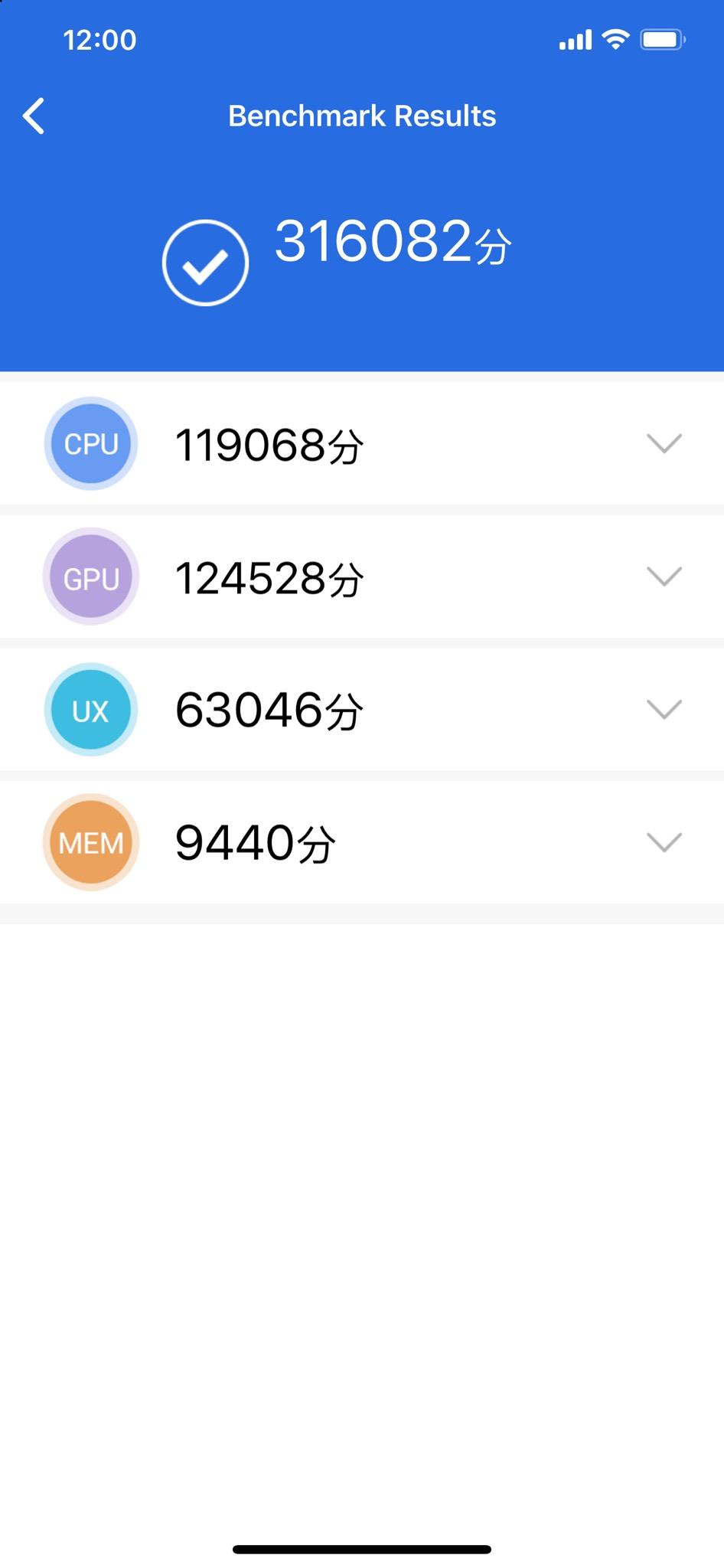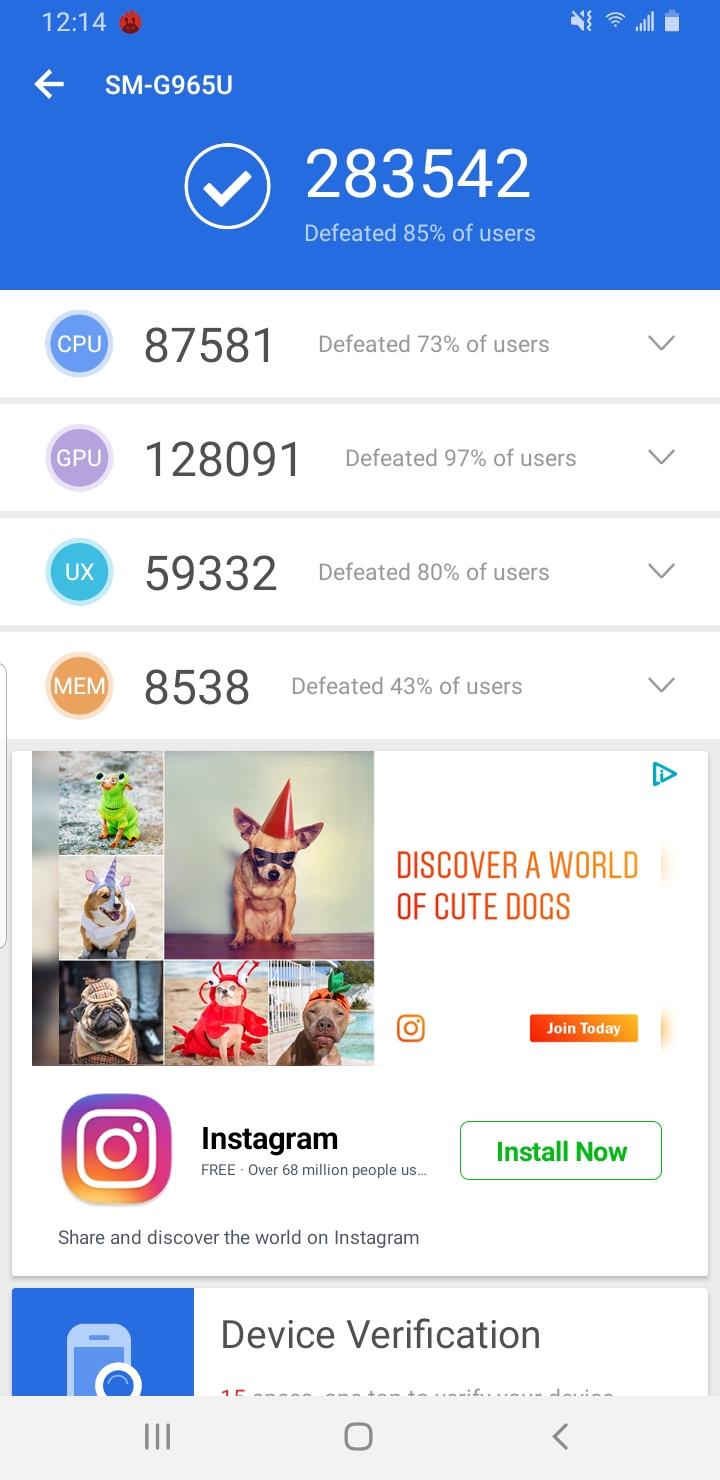Madtiger
About
- Username
- Madtiger
- Joined
- Visits
- 21
- Last Active
- Roles
- member
- Points
- 354
- Badges
- 1
- Posts
- 240
Reactions
-
Qualcomm's Snapdragon 855 is over a year behind Apple's A12 Bionic, lacks a premium Androi...
Huh?! A12 GPU has 6 cores? Adreno 630 running 1866 Mhz??? You're confusing CPU speeds with GPU!!! You don't even know the difference!!!! LOLEximorph said:
Are you smoking something??.Madtiger said:Let me post it again:
According to deep analysis by Anandtech, A12 GPU is better than S845 in SUSTAINED PERFORMANCE BY A WHOOPING 45 (FORTY-FIVE) PERCENT!!!! Yes, 45% faster. Your S845 is trash compare to A12 GPU.
To quote Anandtech:
“In terms of sustained performance, the figures quickly reduce after a few minutes and stabilise further down the road. Here, the iPhone XS outperforms the iPhone X by 61%. The Apple A12 is also able to beat the current leader, the Snapdragon 845 inside the OnePlus 6, by 45% in sustained performance.
...the iPhone XS and XS Maxi, thanks to the new A12 SoC, showcase industry leading performance and efficiency, and currently are the best mobile platforms for gaming, period.”
S855 is ONLY 20% faster than S845. Do the math. OUCH!
We have the adreno 630 runing on a single high performance core using opened gl es 3.1 in a 10 nm technology with a 1866 mhz memory ram doing 128k in antutu
In the other side we have tha A12 runing on 6 cores using metal 2 with a 7 nm technology with 2133 mhz memory ram scoring 124k and you still believe in what you are saying??
Drugs are bad man, stop using them.
For your education, Adreno 630 runs 710MHz.
Your S845 CPU:
4x Kryo 385 Gold (A75 derivative)
@ 2.8GHz 4x256KB pL2
4x Kryo 385 Silver (A55 derivative)
@ 1.80GHz 4x128KB pL2
You quoted Anandtech before. Read ANANDTECH again kid. A12 GPU is 45% faster than S845 In SUSTAINED performance. FACT.

-
Qualcomm's Snapdragon 855 is over a year behind Apple's A12 Bionic, lacks a premium Androi...
AnTuTu is far from being a true benchmark in anything...but here are my scores on my XS: http://www.toyota-4runner.org/3168698-post19.htmlEximorph said:Did you know what you are talking beacus I think you know nothing.
Antutu bench
iPhone x max 64 GB
7 nm technology
Ram: 2133 mhz
Api: metal 2 (multicore support)
GPU score 124,528
Galaxy s9+
Snapdragon 845 GPU adreno 630
10 nm technology
Ram: 1866 mhz
Api: opengl 3.1 (single core)
GPU score 128,091
3D mark
iPhone x max
4231
Galaxy s9+
5099
So like you can see the one a year behind and the one destroyed by an a year old GPU is the apple A12 bionic. I dont know if you but I have both right now in my hands.
On the CPU the A12 bionic is faster but on the GPU dont even dream with that.
Get the right information before post a blog.

3D Mark has a bug in it that causes crashes unless iPhone was warm. So, the score is off. In other GPU testings, A12 spanks S845 by a wide margin. In fact, it is likely that A12 will still lead in GPU over the S855.

-
Qualcomm's Snapdragon 855 is over a year behind Apple's A12 Bionic, lacks a premium Androi...
Nope. Japan is set to effectively ban government purchases of telecommunications products from China’s Huawei Technologies Co Ltd and ZTE Corp over fears of intelligence leaks and cyber attacks, the Yomiuri newspaper reported on Friday. In addition, Australia and New Zealand have blocked Huawei from building 5G networks, while Britain’s BT Group said on Wednesday it was removing Huawei’s equipment from the core of its existing 3G and 4G mobile operations.avon b7 said:
https://www.bloomberg.com/opinion/articles/2018-12-06/huawei-bust-signals-the-real-u-s-trade-war-with-chinaMadtiger said:Oh look Japan is readying to ban Huawei and ZTE over spying concerns.
Spying has little to do with anything. Everybody will try to spy on everyone else, just like they always have. This is about competition.
Over the past couple of years, Huawei has reportedly circumvented sanctions imposed on North Korea and Iran, providing the countries with telecom equipment that can be used for extensive spying on populations, so-called dual use technologies.Last month, senior German officials said they are planning a last-ditch drive to convince the government to consider excluding Chinese firms such as Huawei from building the country's 5G infrastructure.
"There is serious concern. If it were up to me we would do what the Australians are doing," one official told Reuters news agency.
LOL...more and more countries are now banning Huawei crap.

-
Qualcomm's Snapdragon 855 is over a year behind Apple's A12 Bionic, lacks a premium Androi...
Seth2015 said:A cross platform benchmark isn't dead accurate. I've already told you why and given an example - unsure why you're missing it?
My i5 at home, I can install Linux and run a benchmark - let's say I get 12,000 little numbers on the screen. I now install Windows 10 on the same chip and get a 10,000. So for those that are slightly slower here (I'm looking at your madtiger) this is the same chip with a different result depending on the OS layer.
iOS is really efficient OS. It doesn't have the extra bloatware that Android has once a manufacture has got hold of it and put on their own skin. A fair comment would be the chip + OS is delivery these awesome figures ... but to pretend the A11 streets ahead of the Kirin 780 is just silly bias on your side. It really is the combination of the two
And lastly, numbers on the screen aren't going to tell you the real world user performance. Yes - the iPhone s quick and smooth ... but my Mate 20 Pro is just the same. I've had zero issues with regards to speed ... but I guess I place more emphasis on real world than numbers on the screen ?Your comment was that the devices run different OSes. True. However you say that means that the tests are invalid, which isn't true.
So the kernel is the first item. The kernel performs several tasks relevant to our tests: Tasking scheduling, RAM management and IO. We can assume that the first is negligible as there is only one high priority tasking running, the benchmark itself. The exception is during the multi-core tests. The question is does one OS provide a significant performance boost over the other due to its scheduling of threads. No, it doesn't. For proof of this we can look further afield to Linux and macOS in general. Will there be a difference, sure, but not enough to bias the results. OS architecture affects performance when the program makes a system call. Geekbench and Antutu, though they have subtests that test system calls, are mostly looping common tasks that are confined to userspace and really just runs on bare metal. They don't touch the kernel.
Next screen resolution. This of course is a factor for GPU tests. For Geekbench it is completely irrelevant. For AnTuTu it is indeed a factor, however AnTuTu has also altered its loads to include off screen rendering. Also, the screen resolutions of the devices under test are similar, not the same, but similar. So, overall nothing here, please move along.
Up next is RAM. Well RAM isn’t part of the OS and it is actually part of the subsystem that we want to test. The differences in RAM performance are important to us, hence running the benchmarks in the first place. If you mean RAM management then that is a part of the kernel as I mentioned earlier. If the tests are doing lots of dynamic memory requests, asking for RAM from the OS and then returning it, then you would be correct. This would exercise the OS much more than the hardware. However, that is not what the tests do. Display and RAM...Geekbench is an off-screen app. It doesn't push anything that the display resolution would affect. RAM might be an issue but it seems Geekbench fits well within the RAM of both devices just fine.
Now we come to storage. It is indeed true that Geekbench contains IO related tests and it is also true that these do have a heavier OS reliance than the other tests. However two things to note. 1) Is that the tests are the same on both operating systems (i.e. using SQLite) and they aren’t specific aimed directly at the native filesystem. 2) While I agree that a bias dependent on the performance of the filesystem will exist, the question is will that biases be more than the performance characteristics of the hardware. Tough question. I will go with no, because the same tests run on different generations of the same platform (say the iPhone 7S compared to the iPhone 8 compared to the X) show the same relative performance increase as observed across platforms. In other words, if the processor under test shows performance gain X on iOS compared to iOS, but a very different relative performance gain on iOS to Android then something is wrong. However, we don’t see that.
One more things to mention.The tests from Geekbench and AnTuTu are written in C, so there is no comparison of the Java Runtime library with Obj-C/Swift etc.
The only real variable is the CPU governor and power throttling schemes. That can indeed affect performance from device to device, not just OS to OS. But Geekbench at least already has that taken into consideration. It has built-in "cooldown" periods when it detects CPU throttling.
Finally, cross platform benchmarking is used all across the industry as a way to test hardware while minimizing the impact of the OS. Well known examples including tests like SPECint.




-
Qualcomm's Snapdragon 855 is over a year behind Apple's A12 Bionic, lacks a premium Androi...
Let’s see...iPhone XS has the BEST camera system, BEST display, great design with SS 316, 5+ years of support, and great resale value.Seth2015 said:I think Apple need to start spending money elsewhere, tbh.
They have this amazing fast chip - but lack on everything else?
Maybe beef up that camera ... or a larger battery ... or change the charging system ... up the screen resolutions ... do something! In real world user experience, there's little between the A11/A12 and the flagship Androids.
Oh, what do Android flagships have again? They’re cheap i guess.
FYI: http://www.toyota-4runner.org/3173976-post20.html
Speed test against two best of Android...see the difference kid?


